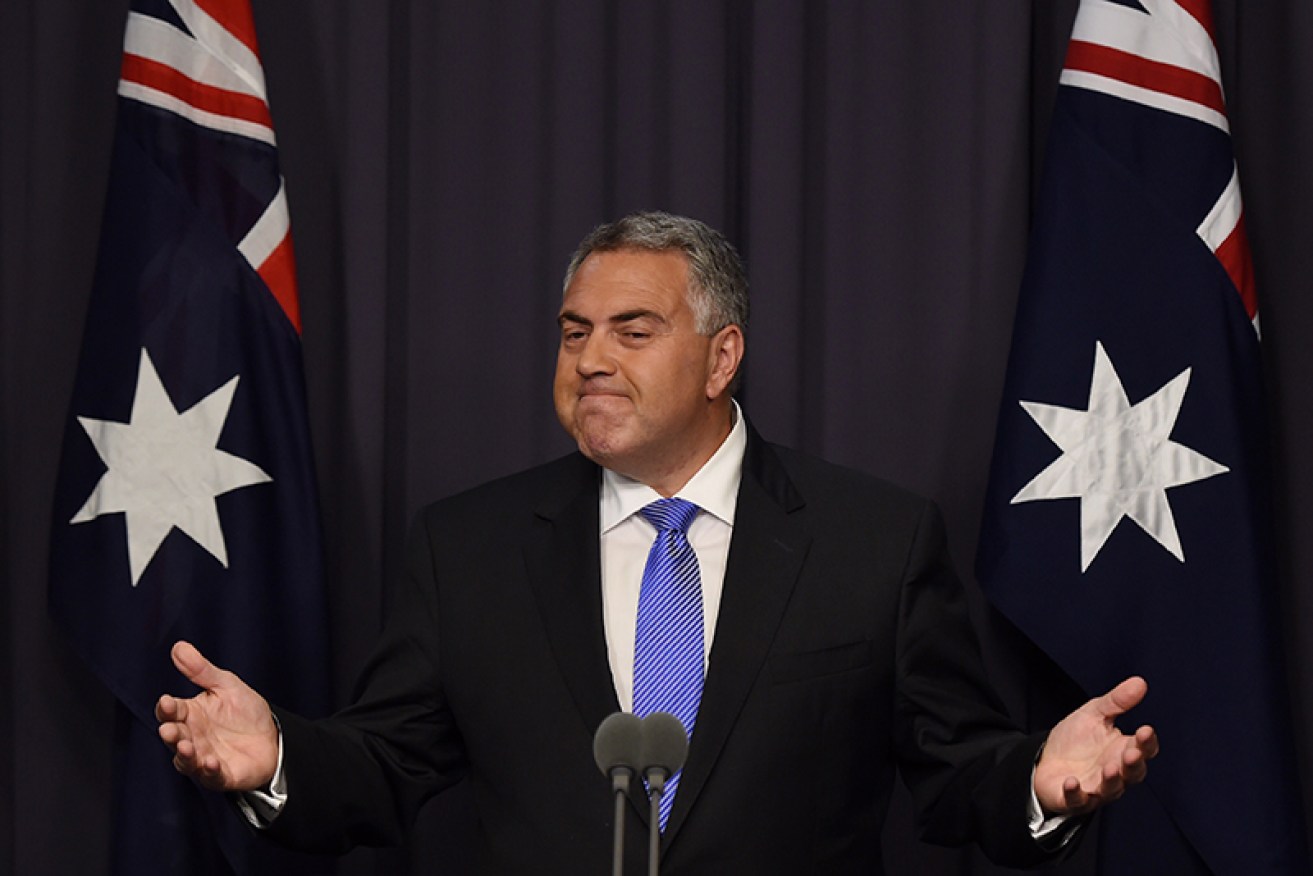Feeding the rich: Hockey’s tax vision unpicked


Getty
On Wednesday, Treasurer Joe Hockey declared in emphatic terms that he wants to slash income tax and company tax and address bracket creep.
But he put forward no alternative tax-gathering ideas, leaving voters with no sensible option but to conclude that he is set on raising the goods and services tax (GST).
Such a policy would likely be very unpopular, which is why Mr Hockey was so cautious in the way he dealt with it.
• Four controversial ways to save the budget
• GST to hit online downloads
• We explain the debate over negative gearing
“When it comes to the GST,” he said, “let me be very clear: no change will be considered without the unanimous agreement of state and territory governments and bipartisan support in the Federal Parliament.”
This is a guarded way of saying he wants to raise the GST, but is afraid to stick his neck out on it.
The Treasurer unequivocally ruled out reducing super tax concessions, even though they massively favour the wealthy.
“Some believe that the solution to the nation’s ills is to slug those who are taking responsibility for their retirement with higher taxes on superannuation. This government absolutely rejects that view,” he said.
So where does that leave us? With even more need for a GST raise – potentially both a broadening to include food and education, and a lifting to, say, 15 per cent.
 Why a GST increase may be a good idea
Why a GST increase may be a good idea
It is true that, at 10 per cent, Australia’s GST is very low by global standards, as can be seen by the following comparisons.
New Zealand: 15 per cent
United Kingdom: 20 per cent
Germany: 19 per cent
France: 20 per cent
Ireland: 23 per cent
Japan: 5 per cent
Canada: 6 per cent
Most of these countries have much lower company tax rates than Australia, and have had to raise their GSTs to make up for it. The UK’s 20 per cent GST now raises three times as much money as company tax.
If Mr Hockey wants to cut company tax – as he expressly does – he will have to significantly raise the GST. Or massively cut welfare.
But it will hit the poor the hardest
The GST is an indiscriminate tax that hurts lower-income groups more than any other. It will be hard to justify targeting the poor in this way, when Mr Hockey so firmly refuses to touch generous super tax concessions to the wealthy.
So how hard will a GST increase hit ordinary and lower-income Australians?
The best place to test this is by looking at its effect on the weekly food shop.
Currently most foods are exempt from the GST. Only ready-to-eat food – e.g. chocolates, pastries, chips, soft drinks, frozen ready-meals, pre-made sandwiches – are taxable (you can see a full list here).
Most foods – including cheese, milk, meat, bread, pasta, vegetables, fruit, juice, coffee – are tax free.
According to a report released by the Melbourne Institute on Wednesday, the average Australian couple with dependent children spent $279.24 a week on food in 2012.
That works out as $14,520 a year.
The Melbourne Institute does not give an average breakdown of how much of that $14,520 is tax-free. Let’s say it’s 70 per cent (probably a conservative estimate).
In that case, by introducing a 10 per cent GST on all food, the average Australian family would be paying an extra $1,016 a year in tax.
If the GST was also risen to 15 per cent, that average family would be paying an extra $1,525 a year in tax. And that’s just on food.
Even if you lived extremely frugally, buying the cheapest of everything, you would still be paying hundreds of dollars a year more, as our frugal shopping list – based on the cheapest products of their kind at Coles on Wednesday – shows.








